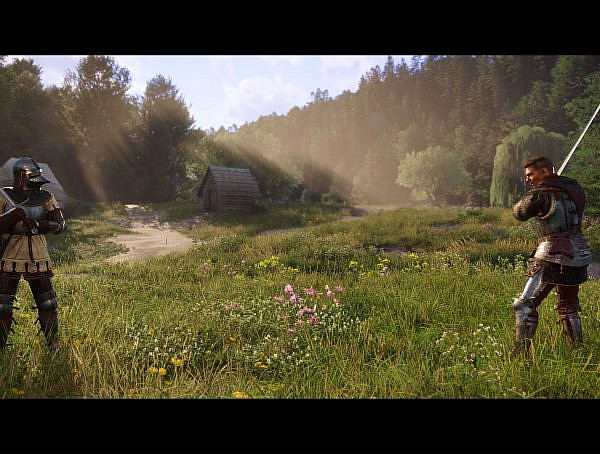Nicolas Lalone’s article “A Tale of Dungeons & Dragons and the Origins of the Game Platform” proposes Dungeons & Dragons as the original gaming platform. The article suggests that despite D&D not being a digital platform it is a gaming platform, such as the Nintendo Wii, or Atari, nonetheless. According to Lalone D&D was formed using the same military-like logic as programming languages and was created around the same time as the first personal computers became available for the public. The concept used in the paper to tie D&D to programming is individuation, the process of becoming oneself.
According to Lalone’s paper, the current research follows the birth of the platform to the military conquests of Napoleon Bonaparte’s campaigns in Prussia. Napoleon calculated probability and the chance of different actions and trained his commanders in the logic of war through a game of war. Chance and evaluation became the primary points of interest for difficult statistical measures. This process was the starting point of computation. Logic, however, often lacked the minute details. The details of the common soldier fighting for his life. The so-called “human element” is missing when the focus lies on logic. The narrative of human emotion would join with the narrative of war, in the minds of a few game developers when they stumbled upon D&D in 1974.
The author asks the question; what exactly is a platform? One definition says it is an environment upon which computations can be performed on. The author acknowledges that to simply say “D&D is the first platform” is dubious but goes forward with the claim anyway. Systems like Atari 2600 or Nintendo Entertainment system are platforms, but not games by themselves. How can a game like D&D be called a platform then? In this essay the writer sees it as follows: D&D rules are the programming language of the system, the dungeon master is the processor and the players and dungeon master together make up the memory of the platform. Then the last piece of the puzzle is the campaign the players are set to play with their DM, this is the software the D&D runs on. Using these principles D&D combined computational logic with the narrative of war.
When war games were created, they were criticized by being only focused on the disconnected logic of war and the more human, narrative part of war would be kept hidden away in diaries of the soldiers. The author sees it as follows: individuating the logic of war with the narrative part gave birth to dungeons & dragons. This allowed people to connect with characters inside strange worlds and form bonds with foreign entities. D&D system has changed a lot over time and is bound to change more in the future. When early pioneers started uploading D&D code to the computer this also changed the D&D platform from analog to digital. The article concludes that future changes to the rules of D&D will show us the potential of a strictly computational system and where it has yet to venture.
Original article: Lalone, N. (2019). A Tale of Dungeons & Dragons and the Origins of the Game Platform. Analog Game Studies, 6 (3)
Title picture from: “Dungeons & Dragons (D&D) Dice” by BigOakFlickr is licensed under CC BY-SA 2.0
You might also like
More from Game Research Highlights
How do you want to do this? – A look into the therapeutic uses of role-playing games
Can playing RPGs contribute positively to your wellbeing? A recent study aims to find out how RPGs are being used …
Eldritch horrors and tentacles – Defining what “Lovecraftian” is in games
H.P. Lovecrafts legacy lives today in the shared world of Cthulhu Mythos and its iconic monsters. Prema Arasu defines the …
Are Souls Games the Contemporary Myths?
Dom Ford’s Approaching FromSoftware’s Souls Games as Myth reveals the Souls series as a modern mythology where gods fall, desires …
















Leave A Reply
[…] https://www.tuni.fi/playlab/dungeons-and-dragons-as-the-first-gaming-platform/ summarizes an article on D&D as a gaming platform. […]